Part two of this review is here
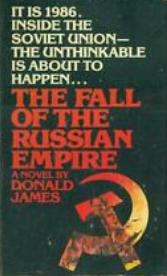
Towards the end of The Fall of the Russian Empire, Armenia, Azerbaijan, Georgia, and all of the Central Asian republics formally break away from the Soviet Union on the same day.
And what is that date? To quote precisely, ‘then on the morning of December 21st …’.
Nine years after this novel was published, these self same republics all signed, on the same day, the Alma-Ata Protocol, which saw them join the Commonwealth of Independent States and leave the collapsing Soviet Union behind. And what was the date of that signing? December 21st 1991.
The Fall of the Russian Empire was published in 1982, when almost no analyst was imagining the imminent collapse of the global superpower that was the Soviet Union.
Donald James might have got the year wrong —his novel places it in 1987— but cut him some slack. To even imagine, in the early 1980s, such a scenario as the Soviet Republics leaving the Soviet Union together on one day was remarkable; to nail the precise day of the year when it would happen was just weird.
The Fall of the Russian Empire is a novel about the collapse of the Soviet Union, written a decade before the event. Along separate, but intersecting, plot strands, it follows the fortunes of a diverse range of characters as the Soviet economy declines, workers’ unrest and strikes increase, the East European satellite states begin to disregard Moscow with impunity, and —crucially— the national republics that make up the Soviet Union, including the Russian Republic itself, rise up against the ruling Soviet élite.
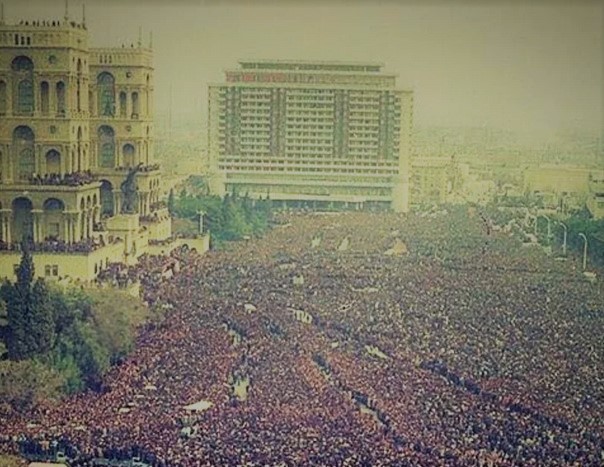
From the perspective of the present day, all of the events in the preceding paragraph read simply as a familiar account of what happened in the late 1980s and early 1990s. What makes The Fall of the Russian Empire one of the most extraordinary works to be reviewed under the remit of ‘Russia in fiction’ is that it was published in 1982, almost a decade before the Soviet Union collapsed in 1991. It is an astonishingly prophetic thriller.
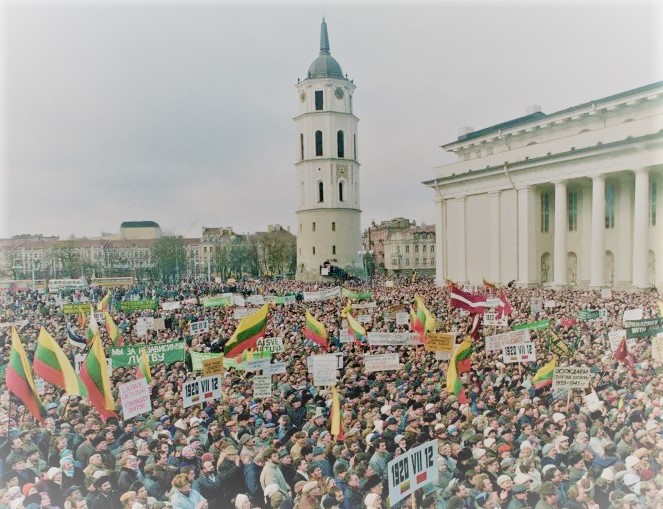
After the Soviet collapse, many observers lamented that despite the huge amounts of money put into expert analysis of the USSR by the Western powers, and by the United States in particular, almost no one saw it coming. One result of this is that in the 1990s, forecasting in the West shifted towards the scenario approach, where experts would not make a single forecast but rather would sketch out multiple scenarios. Often such scenarios would be in the form of a fictionalised future narrative.
The Fall of the Russian Empire is set up as an account written several decades after the events that it portrays and drawing on
accounts, memoirs, copies of diaries from others who had fled and survived the Sovietschina [sic]
assembled by a survivor of the great events of the 1980s which finally swept away the Soviet Union
The Fall of the Russian Empire, p. 438 and p. 5
The strength of scenario planning is often proclaimed to be that it allows the planners to consider the unthinkable. In The Fall of the Russian Empire Donald James only needed to sketch out one scenario, and yet he still managed to foresee what almost no other writer or analyst or journalist or diplomat did at the time. As the cover of the novel proclaimed, ‘the unthinkable is about to happen …’
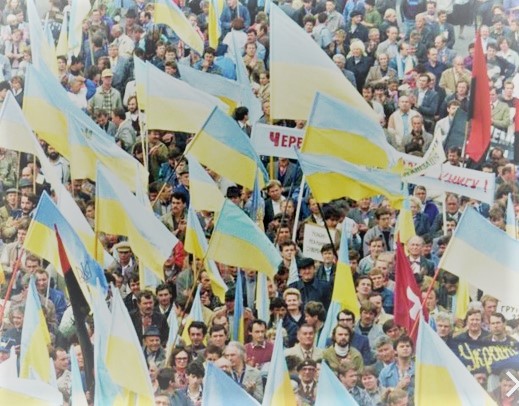
Of course, Donald James’s account is not precisely accurate. He has the Soviet collapse coming about four years before it actually did and with some more —though only a little more— violence than was to occur in the real world. But to point this out is not to downplay his extraordinary prescience, particularly in relation to perceiving not only that the potential for national unrest amongst the subject republics of Ukraine, the Baltic states, and the Trans-Caucasus in particular could prove fatal for the very existence of the Soviet state, but also that such nationalist, anti-Soviet feeling would flare up in the Russian Republic itself.
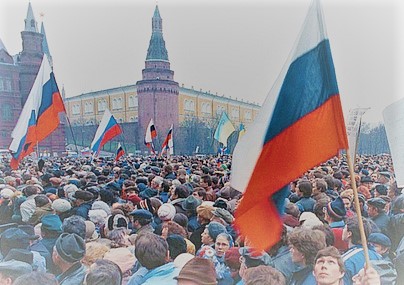
When the Soviet end came in reality, it was the rise of Russian nationalism —adopted and guided by long-term Communist and former Soviet loyalist, Boris Yeltsin— that dealt the decisive final blow.
Part two of this review is here